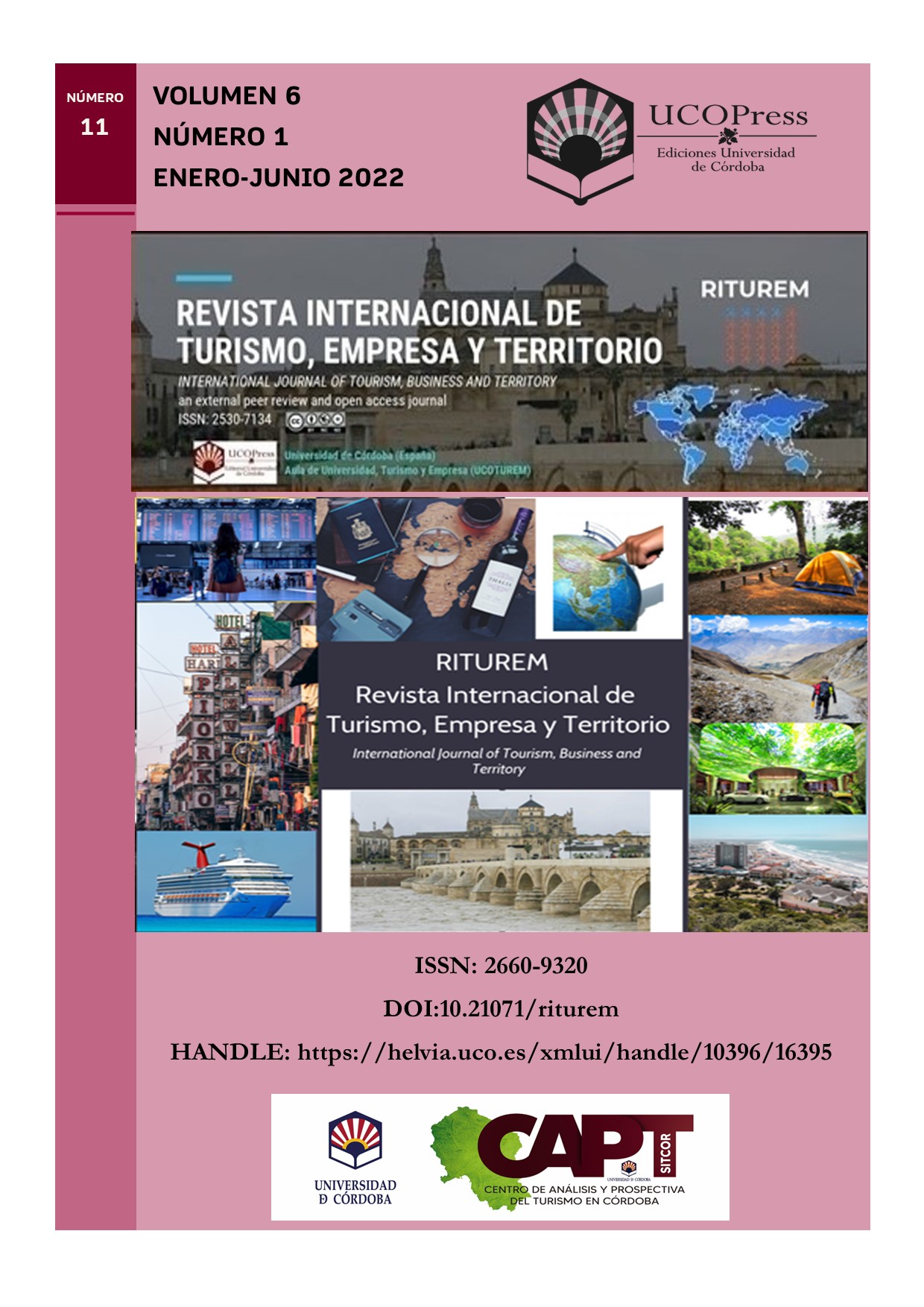Diseño de estrategias turísticas pos-COVID-19 en las islas del Caribe: una propuesta para la isla de Cozumel (México)
Contenido principal del artículo
Resumen
Las estrategias turísticas de múltiples destinos han sido criticadas debido al permanente énfasis económico y en el aumento de visitantes, sin considerar los efectos negativos asociados, así como las nuevas tendencias post-COVID-19, que exigen mayor sustentabilidad en todas las actividades humanas. El objetivo de este trabajo es, en este sentido, revelar las prioridades sociales en el diseño de estrategias para la isla Cozumel (México) con el objetivo de prevenir o mitigar el aprovechamiento insustentable del turismo en un escenario post-COVID-19. Para ello se ha realizado un estudio de caso, por medio del análisis multicriterio, con la técnica PESTLE (Política, Economía, Sociedad, Tecnología, Leyes y Ecología) y una encuesta específica. Los resultados sugieren que las estrategias deben orientarse de forma prioritaria hacia la conservación y la sustentabilidad y posteriormente al mantenimiento y creación de empleo. Esta investigación pretende contribuir, en consecuencia, a plantear un diseño adecuado de estrategia turística en los destinos turísticos insulares, particularmente del Caribe), con énfasis en el aprovechamiento sustentable y la gestión de crisis.
Palabras clave: estrategias, turismo, técnica PESTLE, COVID-19, isla de Cozumel.
Descargas
Detalles del artículo
Avisos de derechos de autor propuestos por Creative Commons
Política propuesta para revistas que ofrecen acceso abierto
Aquellos autores/as que tengan publicaciones con esta revista, aceptan los términos siguientes:
- Los autores/as conservarán sus derechos de autor y garantizarán a la revista el derecho de primera publicación de su obra, el cuál estará simultáneamente sujeto a la licencia Creative Commons CC BY-NC 4.0 (https://creativecommons.org/licenses/by-nc/4.0/deed.es ) , que permite a terceros compartir la obra y permitir obras derivadas siempre que se indique su autor, su primera publicación en esta revista y cuando no se haga uso comercial.
- Los autores/as podrán adoptar otros acuerdos de licencia no exclusiva de distribución de la versión de la obra publicada (p. ej.: depositarla en un archivo telemático o en un repositorio institucional o publicarla en un libro monográfico) siempre que se indique la publicación inicial en esta revista.
- Se permite y recomienda a los autores/as difundir su obra a través de Internet (p. ej.: en archivos telemáticos y repositorios institucionales o en su página web) antes, durante y con posterioridad al proceso de envío, lo cual puede producir intercambios interesantes y aumentar las citas de la obra publicada. (Véase El efecto del acceso abierto).
